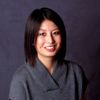Migrating to Australia has many benefits… and challenges, writes Karen Tye.
In January, I spent my first Australia Day in many years… in Australia. Revelling in the celebrations reminded me of what makes this country so culturally diverse and unique. It made me reflect on how I became an Australian shortly after I moved to Melbourne in 1990 and how I identify myself nowadays. According to the Australian Census of Population and Housing in 2011, I’m not alone – a quarter of Australia’s population was born overseas.
Government statistics show that Australia is home to over 860,000 Australians of Chinese decent, so it is no wonder that Mandarin has become the second most spoken language in homes after English. In 2011-12, 25,509 Chinese migrants arrived in Australia, making it the second largest source of permanent migrants after India.
While Charlie Dong, who migrated to Melbourne in 1991, contributes to such statistics, his story, like many others, is far more interesting than what the numbers let on.
“My dad was a doctor in China and he sacrificed his career to do better for us. We moved to Australia purely for economic reasons. At that time, what you could make in an Australian factory was more than 20 years’ wages in China, there was absolutely no comparison,” Dong says.
Today, after starting out as a hospital pharmacist, Dong now has a PhD in pharmaceutical sciences and is a lecturer at Monash University, and has received various accolades for his work in the area.
It wasn’t always smooth sailing for him though, especially when he first arrived on Australian shores.
“Language was my number one difficulty, although the teachers were very understanding about it,” Dong, who attended a state school, recalls.
According to Dong, his language barrier led to bullying. “This was especially the case in Year 6 and 7, which was the cruelest and most destructive period I endured.”
“Bullying seems to be a cultural phenomenon in Australia and doesn’t raise alarm bells as much as it does in other countries. This is partly because teachers’ hands are tied. Most of us who migrated to Australia at that time experienced bullying of some sort,” Dong says.
“I’m not sure how things are these days although I don’t envision that there has been a massive change.”
Nevertheless, Dong believes that bullying and prejudice do not necessarily go hand-in-hand.
“There isn’t always a racial element to things. And something that Chinese people should also take into account is Australian humour. Aussie people like to have a bit of a dig at others sometimes, and so there shouldn’t be any offense taken to it,” he says.
As for how Dong views himself, he says he is becoming more and more Aussie, the more time he spends in Australia.
“Politically and nationalistically, I’m more Aussie than Chinese but culturally, I will remain Chinese.”
This is reflected in Dong’s family life also. Dong and his wife, who also migrated from Shanghai in her teens, are raising their two daughters to speak English, Mandarin and Shanghainese.
“Australia is my home but if I see China do well, like say in the Olympics, that makes me proud too,” he says.
His advice for new Chinese migrants to Australia is to lower their expectations and put into perspective what they can achieve in a short period of time because every single thing needs to be started from scratch.
“There seems to be a lot of ‘new money’ types coming from China. I have seen a lot of Chinese people who become disappointed and bitter after moving here because Australia doesn’t seem to be what they expected,” says Dong.
“One simply can’t rely on guanxi. Australia is a great equaliser,” he says.
“For example, white collar Chinese professionals can’t expect to have the same kind of position and pay grade in Australia like they did in China, even though they consider themselves to have international experience – for one, they don’t know the local market, as well as the culture, which is important when it comes to managing people.”
Regarding his own migration experience, Dong has zero regrets. This view was almost formed instantly.
“I had asthma as a child, which was aggravated by cigarette smoke and pollution. It was so bad that I was often hospitalised and required oxygen,” he says. “But all that went away the moment I stepped off the plane and onto Australian soil.”
“Overall, I’m really glad I came here and I wouldn’t have done so well otherwise. I’m really grateful my dad sacrificed his career so that I could have one,” he says.
“One can really do anything they want to in Australia – there are no limits.” ■

















